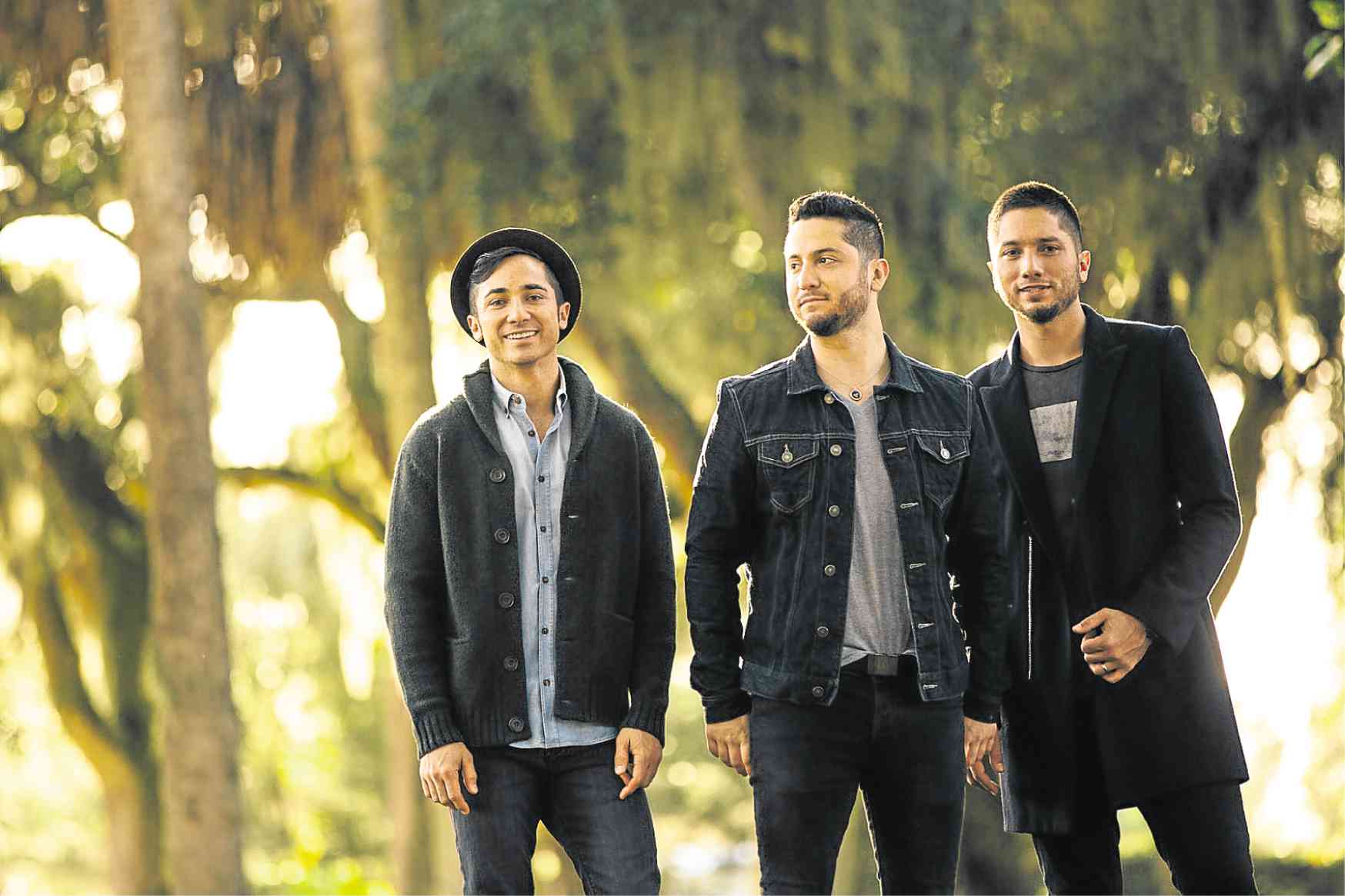Boyce Avenue, the pop band that rose to fame through YouTube with its viral covers of classic and contemporary hits, has been to the Philippines about seven times now. But still, the group’s visit to the country in 2009 remains its most memorable.
After all, it was the first time bandmates/brothers Alejandro, Fabian and Daniel Manzano have performed outside the United States.
“Our first visit here was one of our favorites. We played some mall shows—and we had never seen malls the size of what you have in the Philippines. We will never forget being backstage and hearing all the screams. And when we finally took the stage, there were thousands of people waiting for us,” Alejandro recalled.
“We didn’t know what exactly to expect. We had no clue what we were in for,” he told reporters in an interview before the trio went on its three-city tour—Manila, Cebu City and Davao City—with local singer-songwriter Moira dela Torre. “Ten years later, we still come back, and the people are just as passionate.”
But unlike Boyce Avenue’s previous shows here, which usually had a full band and a more “pop” production, this series of gigs was more intimate and stripped-down, with the boys playing bare-bones versions of such songs as “Wonderwall,” “Perfect” and “Yellow.”
Doing an acoustic set at a venue like the Big Dome is daunting, Daniel admitted. But the setup allowed them to put more emphasis on the lyrics, the vocals and overall beauty of the music. Not to mention, the crowd sing-along even sounded louder.
Excerpts from the interview with Boyce Avenue:
Can we expect a collaboration with you guys and Moira?
Daniel: We’ve all been very busy. As you know, there’s an ocean separating us. But if we can find a way to put something together someday, then that would be exciting. I think our music will go together well. There’s just something about her voice [that evokes] passion. Perhaps we can do a good cover, a duet; something that has a lot of emotion to it.
Do you have specific criteria about which songs to cover?
Alejandro: It’s something instinctive. You feel it once you play it on the guitar or piano. We feel like we have a responsibility to be honest and, at the same time, give the fans some variety. That’s part of our approach; we like to mix it up a bit. We do old classics and new ones in order for us to establish an entertaining channel that keeps everyone on his or her toes.
Fabian: The tricky part with music is that it’s all very subjective and emotional. There’s no mathematical formula that helps guarantee that this or that particular song will be liked by people.
Sometimes, the most unlikely songs are the ones that truly resonate with the listeners—and that’s what is cool about music. A lot of times, it’s all about feeling. You listen to it, you connect to it, and end up loving, without knowing exactly why.
How do you feel when fans tell you that your covers are better than the originals?
Daniel: At first, we were hurt because we thought the fans were saying that our covers were better than our original material. But later on, we realized that what they meant was that they preferred our covers to the original versions, which is a huge compliment.
Suddenly, we started feeling that we have this responsibility to inject our personality into a song, which I think is what people appreciate in our work.
You were one of the first music acts who utilized YouTube. How do you think social media has changed the musical landscape?
Alejandro: It depends on which generation you’re from. We grew up at a time when it’s about CDs and full album versus singles. But, if somebody told me as a kid that something like Spotify would exist, with its millions of songs, I would have absolutely flipped out.
But I also look back with fondness at the memories of going to a record store, buying an album, giving your complete attention to that one album or artist for the rest of the day—which is something you don’t get to feel much these days.
Fabian: The best thing about social media is that it allowed us to connect to people in far away places. The first country we played in that isn’t the United States is the Philippines. And I don’t think we could have done that 20 years ago. YouTube allowed us to tap listeners from different parts of the world. We’re so grateful for social media.
